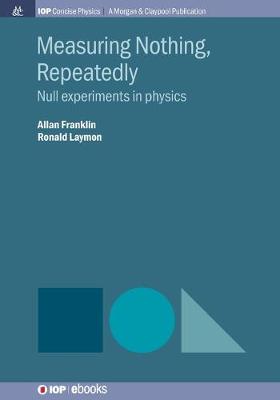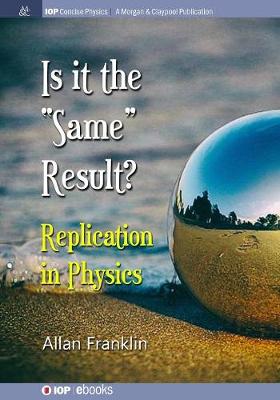Iop Concise Physics
2 total works
There have been many recent discussions of the 'replication crisis' in psychology and other social sciences.
This has been attributed, in part, to the fact that researchers hesitate to submit null results and journals fail to publish such results. In this book Allan Franklin and Ronald Laymon analyze what constitutes a null result and present evidence, covering a 400-year history, that null results play significant roles in physics.
This has been attributed, in part, to the fact that researchers hesitate to submit null results and journals fail to publish such results. In this book Allan Franklin and Ronald Laymon analyze what constitutes a null result and present evidence, covering a 400-year history, that null results play significant roles in physics.
Replication, the independent confirmation of experimental results and conclusions, is regarded as the "gold standard" in science. This book examines the question of successful or failed replications and demonstrates that that question is not always easy to answer. It presents clear examples of successful replications, the discoveries of the Higgs boson and of gravity waves. Failed replications include early experiments on the Fifth Force, a proposed modification of Newton's Law of universal gravitation, and the measurements of "G," the constant in that law. Other case studies illustrate some of the difficulties and complexities in deciding whether a replication is successful or failed. It also discusses how that question has been answered. These studies include the "discovery" of the pentaquark in the early 2000s and the continuing search for neutrinoless double beta decay. It argues that although successful replication is the goal of scientific experimentation, it is not always easily achieved.

